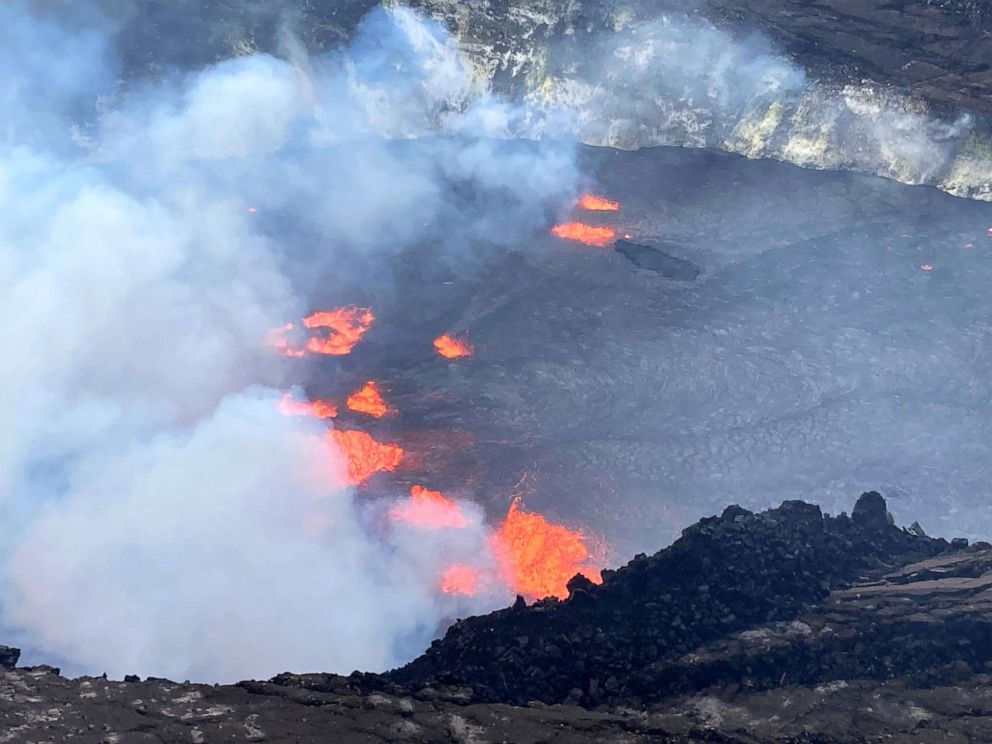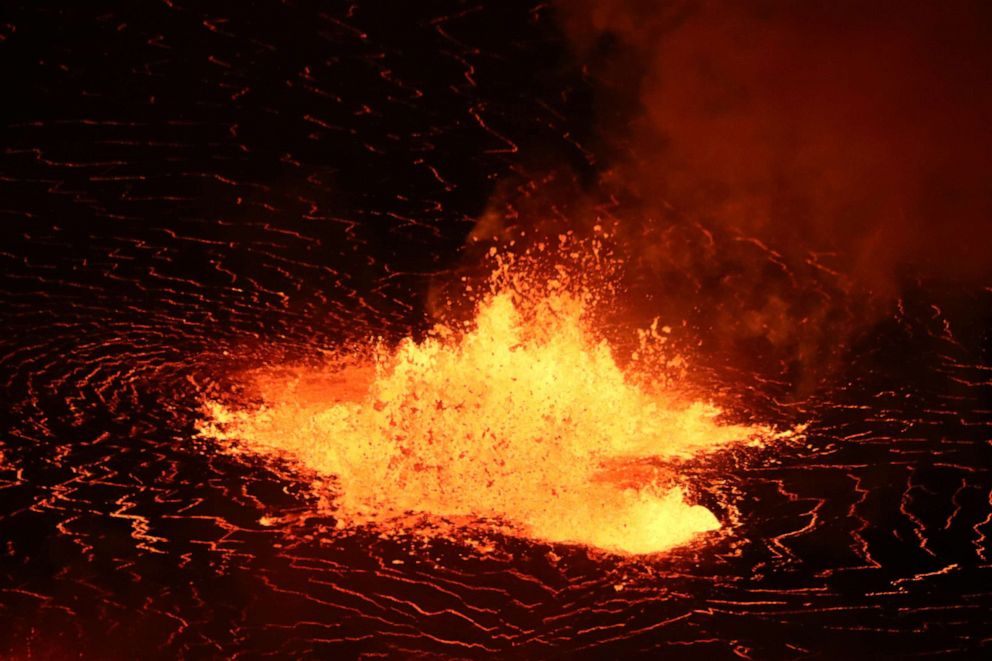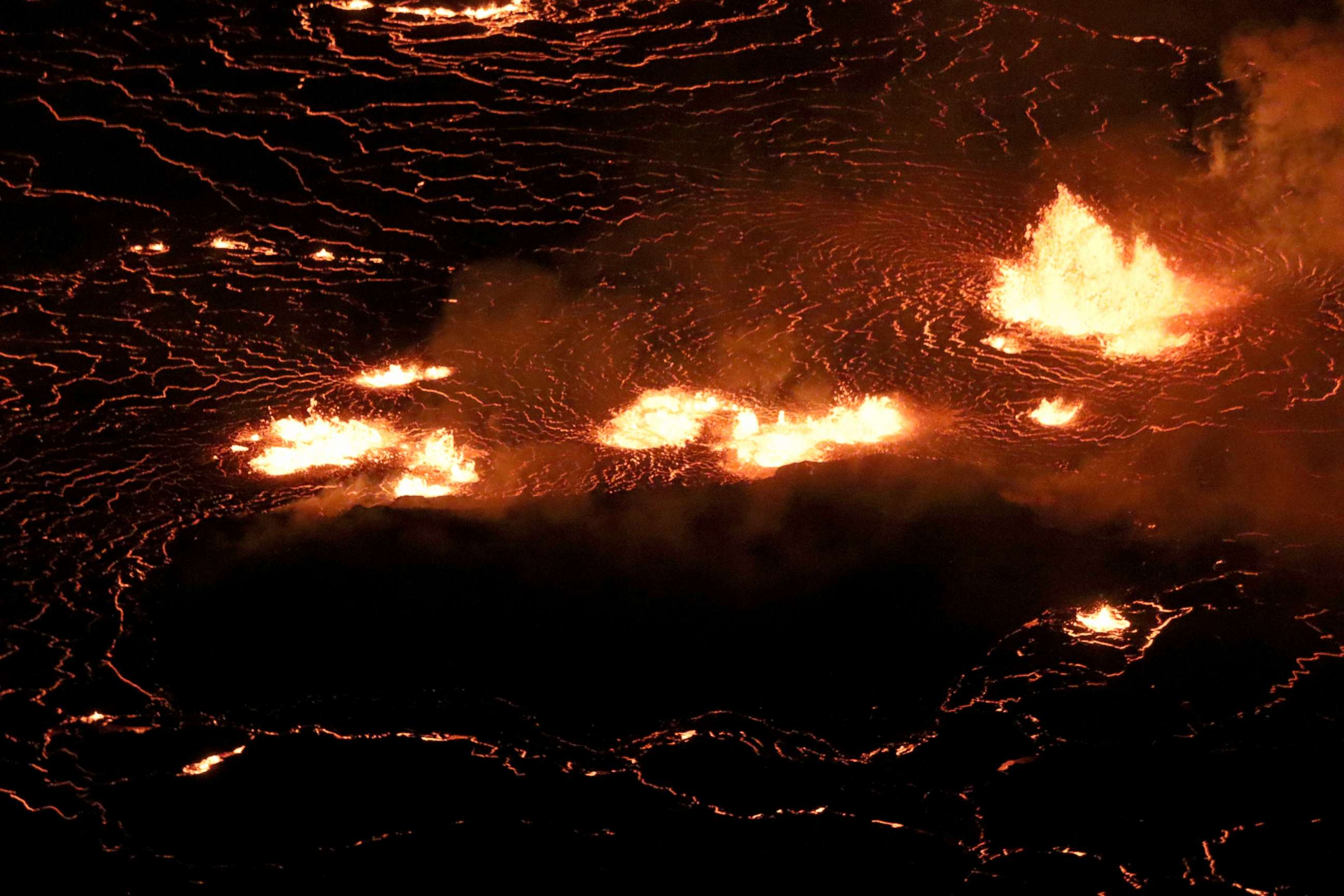Lava continues to flow out of Hawaii's Kīlauea volcano, one of the most active in the world
The volcano is one of the attractions within Hawaii Volcanoes National Park.
Lava is continuing to ooze out of the Kīlauea volcano on Hawaii's Big Island a day after it began erupting.
Scientists at the U.S. Geological Survey's Hawaiian Volcano Observatory detected a glow around 3:20 p.m. Wednesday at the summit of the volcano's caldera, a cauldron-shaped hollow that forms after a large volume of magma erupts in a short period of time.

By 3:42 p.m., the eruption had sparked within the Halema'uma'u crater, and webcam video of the activity showed fissures at the base of the crater generating rivers of lava, the USGS reported when changing its alert level from "watch" to "warning" Wednesday afternoon.
The lava lake that the new lava is flowing into had been cooling since May, when another series of eruptions had ceased.

As the eruption continued through Wednesday evening, a line of lava fountains erupted on the crater floor, causing tephra, a material produced by the eruption, to fall downwind, according to the USHS. A new fissure also opened up on the West wall of the crater around 4:40 p.m., with lava continuing to flow overnight.
Kilauea, located within Hawaii Volcanoes National Park, is one of five volcanoes on the Big Island and is one of the most active volcanoes in the world, according to the USGS.

In 2018, a series of eruptions from Kilauea wreaked havoc on nearby communities, prompting widespread evacuations and destroying hundreds of homes in the direct path of the rivers of lava.
The eruption was so extensive that fountains of lava were feeding into the Pacific Ocean after completely filling Kapoho Bay.






